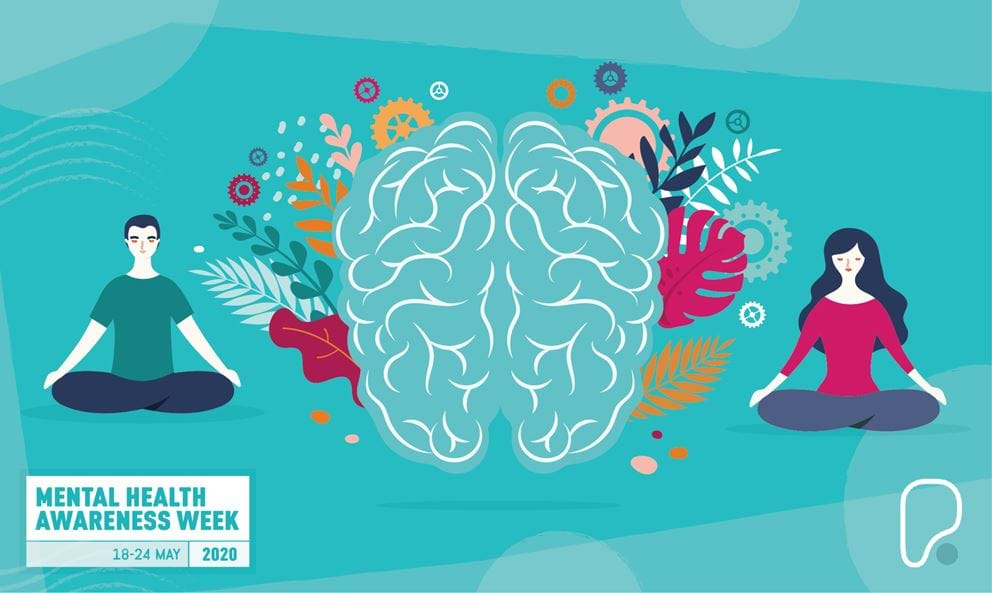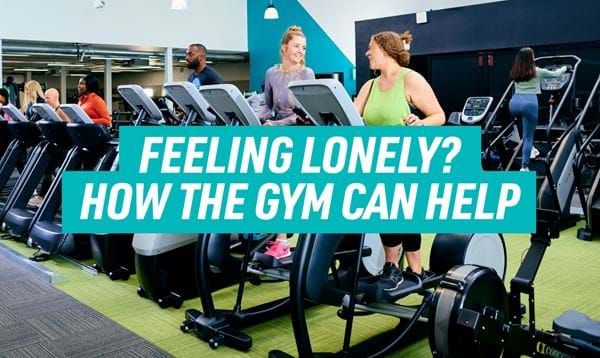Mental Health Awareness Week 2020: How to Stay Mentally Fit and Healthy

This week is Mental Health Awareness week and research by the Mental Health Foundation tells us that 74% of UK adults report that they have felt stressed to the point of feeling overwhelmed and unable to cope at some point in the past year… and that was before COVID-19 arrived as the new kid on the block.
We all have mental health. And just like our physical health, it’s important that we look after it. So, we spoke with Dr Sarah Hattam to find out what practical steps you can take to look after your mental health.
Check-in with yourself
There’s a phenomenon called “The Hawthorne Effect” which describes the tendency for us to take proactive steps to manage whatever we measure. Bringing things into our conscious awareness increases the chance that we will change our behaviours intentionally. Which is one of the reasons why fitness trackers nudge us to get more active - it’s hard to argue with data.
One of the first steps towards becoming more aware of our own mental health is to start to intentionally check-in with our emotions. It’s recommended to try and rate your mood each day, ideally in both the morning and evening, with a score out of 10.
The current pandemic has affected all of us in one way or another. We’ve all had to negotiate and face new challenges, and that’s putting it mildly. Resilience describes our ability to cope with and thrive in the face of these kinds of unexpected pressures.
If we’re feeling pretty resilient one day, we might give ourselves a score on the upper end of the scale. But on other days, our scores might be much lower, and that is okay too. The most important part of this technique is just trying to become more aware and in tune with our own wellbeing and emotions.
By making time to objectively score our resilience and emotions every day, we are able to actively notice when our mental health and wellbeing may be starting to slip. Whilst also helping us to join the dots between anything that could be positively or negatively impacting our mood, emotions and mental fitness.
Although you may find it hard at first to face your emotions head-on, it’s important to remember that insight brings awareness and awareness leads to action. You might start to notice that getting better sleep helps to lift your spirits. Or that eating more healthily throughout the day gives you an extra spring in your step.
Focus on your circle of control
There are lots of aspects of life, particularly at the moment, that are completely out of our control. The government’s actions, school closures, supermarket queues and the cancellation of travel plans. They all lie outside of what we like to call our ‘circle of control’.
Now, although it’s definitely easier said than done, there is little point wasting our mental energy on anything that is not within our direct circle of control.
Instead, we can choose to make positive changes to the things that are. Like keeping up with our daily PureGym home exercise class, avoiding excessive alcohol and spending some time outside each day within the current restrictions. These are just examples of behavioural changes that are within our control and can also help to lift our mood.
Try to keep a lid on worry
Recent weeks have brought a phenomenon of “stress proliferation”. The primary anxiety around the COVID-19 pandemic has brought secondary impacts on our finances, relationships and plans for the future. Uncertainty triggers a stress response in our brains which raises the level of the body’s main stress hormones, cortisol and adrenaline.
Cortisol is our body’s “get up and go” hormone. Together with adrenaline, it ramps up our heart rate, blood pressure, and blood sugar levels. Powering our fight, flight, fear response, it prepares us to escape from a perceived threat or danger. The problem is that in 21-century life the stress switch can often get stuck in the “on” position for many of us. The downsides of this can be anxiety, exhaustion, brain fog, and poor sleep.
Our minds have a tendency to go over and over an issue that’s worrying us. So identifying and addressing the specific reason for this worry can be helpful. And if we can get answers, more information, or certainty this will often short-circuit the brain’s worry cycle.
Another technique is to write down everything that is on your mind on a “worry list” and appoint a trusted “worry buddy” to support you. Agree that you will listen to each other’s worry list once each week. The important thing to remember is that you don’t have to solve everything in it. But the act of writing it down will prevent it endlessly rattling around in your mind and can help bring clarity.
Or another technique you can try is allocating “worry time” once each day for 10 to 15 minutes. Although it may seem hard at first, try to postpone your worrying until this time. This reduces the tendency for us to ruminate, which is the mental equivalent of endlessly picking at a spot. And often when we do this, we become better at switching off from our worries.
Choose Your Connections
Human beings are sociable creatures and recent research shows that loneliness carries risks to our physical and mental health.
Scrolling through the latest Instagram feed or watching endless YouTube clips just doesn’t give us the same boost to our mental health as speaking to a friend or loved one. Closer social connections release higher levels of the neurotransmitter oxytocin which triggers feelings of wellbeing, belonging and has even been tested as an anti-anxiety drug. The more emotionally invested we are with another person, the more positive the impact of connecting with them is. So, although we can’t be physically connected right now, it’s worth making time to regularly catch up with friends and family. A virtual catch up will almost certainly boost your mental wellbeing and theirs too.
Focus your energy into ‘three things’
Our normal routines have been completely upended in the past few weeks. It’s understandable that some of us are struggling to maintain focus in the face of this lack of daily structure. But a productive day starts the night before, so it can be helpful to put a little bit of prep time in to set yourself up for a great day.
Try to commit 10 minutes to write down your three most important tasks for the following day before you go to bed. It’s best to be realistic on what you can achieve so you don’t set yourself up to fail. So, if there are bigger tasks you need to get done, break them into smaller subtasks and select the three that you will tackle first.
Keep the list and at the end of the following day tick them off. Knowing what you want to achieve in the day and getting it done provides a great boost to our mental health and can keep us on track at this unusual time.
It can also be helpful to spend a few moments reflecting on your day. We know that gratitude helps us to re-wire our brain pathways so that we start to focus less on the negatives and more on the positive aspects of daily life. Choose three specific small things that you have enjoyed or feel thankful for and write them down.
Remember that when it comes to our mental health, small gains really add up. Which one of the tips are you going to start off with?
We all have mental health and it’s worth looking after.


